When you’re in foster care, it can feel like you have no control and other people are making all the decisions about your life. You still have rights, and it’s important for you to understand what you should expect from your social worker and the foster care system. There are also responsibilities that you are expected to meet.
YOUR RIGHTS
Between the ages of 14 and 21, as a foster youth in Mississippi, you have the right to:
Right #1
Know why you are in foster care and how MDCPS will meet your needs.
Right #2
Know what progress your family will have to make before you may return home.
Right #3
Visit with your family unless a youth court judge says you cannot and be provided an explanation as to why visitations have been prohibited or restricted.
Right #4
Know your social worker, his or her supervisor, their office phone numbers and addresses, and how to get help from your social worker.
Right #5
Right #6
Fair treatment, whatever your gender, gender identity, race, ethnicity, religion, national origin, disability, medical problems, or sexual orientation.
Right #7
Not receive any harsh, cruel, unusual, unnecessary, demeaning, or humiliating punishment.
This includes not being shaken, hit, spanked, or threatened, forced to do unproductive work. It also means that you cannot be denied food, sleep, access to a bathroom, mail, or family visits as punishment. You have the right not to receive remarks that make fun of you or your family or any threats of losing your placement or shelter.
Right #8
Be disciplined in a manner that is appropriate to how mature you are, your developmental level, and your medical condition. You must be told why you were disciplined. Discipline cannot include the use of restraint, seclusion, corporal punishment or threat of corporal punishment.
Right #9
Expect a safe and healthy place to stay while you are away from your home and to know all the rules and regulations of your placement.
Right #10
Take part in decisions made about you, to attend foster care review conferences and to participate in designing your Individual Service Plan (ISP).
Right #11
Go to your court hearing and to speak to the judge at any court hearing that affects where you have been placed including status hearings, permanency hearings, and placement review hearings, unless you have received communication from the judge on why you cannot attend.
Right #12
An advocate who represents your best interests in court (called a Guardian Ad Litem or GAL) and to have contact information for him/her and the right to counsel.
Right #13
Know when your placement or your visits with your family are about to change. Your social worker will tell you as soon as they know there will be a change.
Right #14
Participate in Youth Transition Support Services engagement and individualized independent living services to help you transition from being in custody to living independently if you cannot return home.
Right #15
If you are a parent, you have the right to parent and retain custody of your child unless you prove to be incapable once a rightful investigation and proper court proceedings have been held.
If your child is removed from your care, you have the right to be fully informed of:
- Why your child is being removed from your custody.
- How long your child will be removed from your custody.
- Where your child will be placed.
- Your rights related to visitation, your child’s medical appointments, and decision making regarding your child.
Right #16
Be treated with dignity and respect, and receive services without regard to race, color, creed, religion, national origin, sex, age, sexual orientation, disability, or political affiliation.
YOUR RESPONSIBILITIES
Between the ages of 14 and 21, as a foster youth in Mississippi, you have the responsibility to:
Responsibility #1
Let someone know if you feel you have been treated unfairly by:
- Talking with your social worker about the problem.
- If the problem is not resolved, asking your social worker or another worker to arrange for you to talk with the Area Social Work Supervisor (ASWS).
- If the problem is still not resolved, asking the Area Social Work Supervisor (ASWS) to let you talk with the Regional Director (RD).
- If there is still a problem, calling the state complaint/grievance unit at 1-601-359-4330.
Responsibility #2
Participate in Youth Transition Support Services engagement and individualized independent living services to help you transition from being in custody to living independently if you cannot return home.
Responsibility #3
Obey the rules and regulations of your placement and know what the consequences will be if you do not follow the rules.
Responsibility #4
Understand that your behavior can disrupt your placement causing unnecessary moves.
Responsibility #5
Be respectful and cooperate with workers and MDCPS staff.
Responsibility #6
Treat others with dignity and respect, and receive services without regard to race, color, creed, religion, national origin, sex, age, sexual orientation, disability, or political affiliation.
